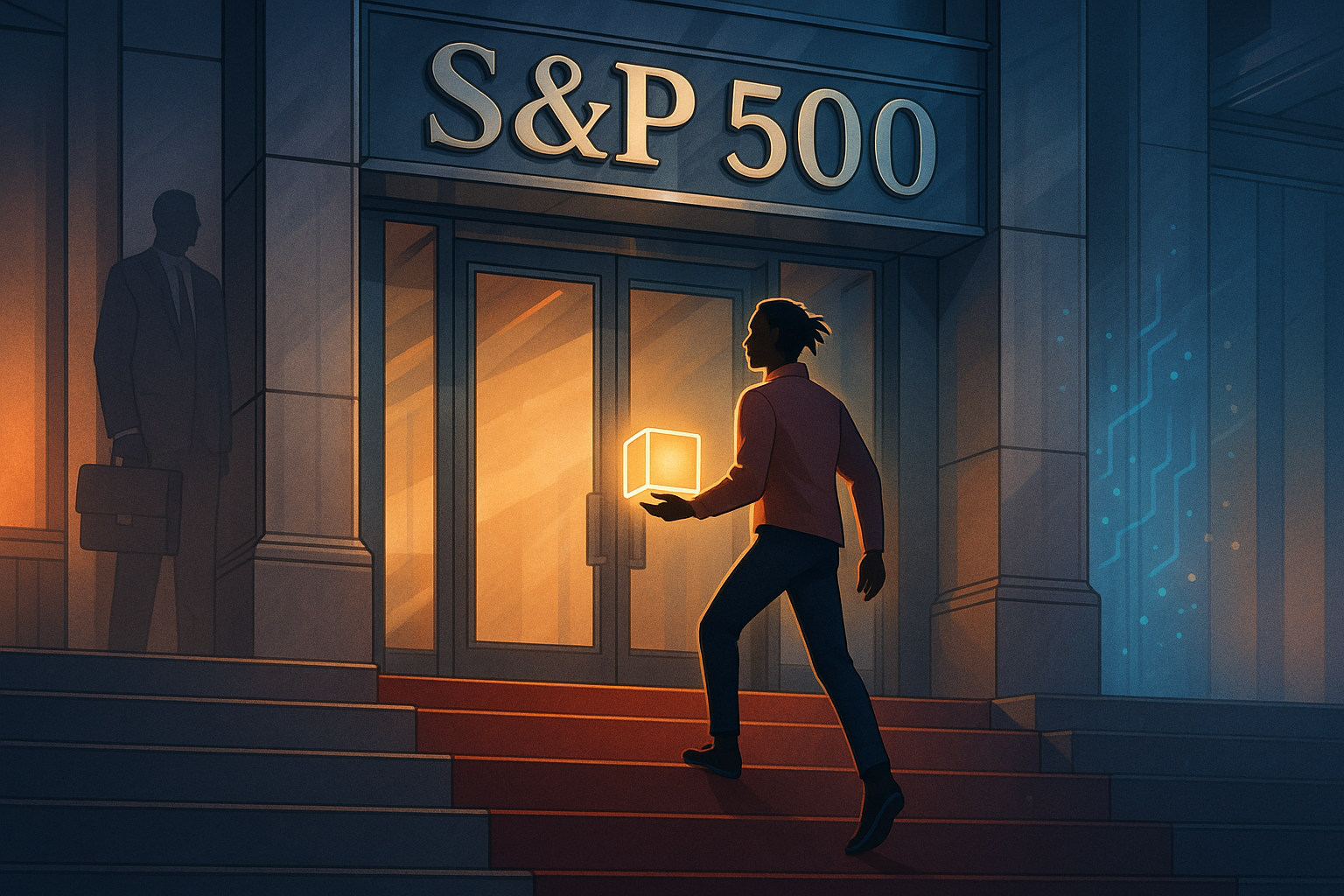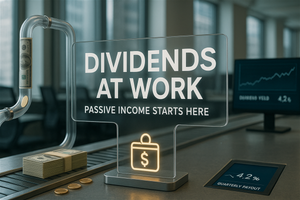
There’s an old Wall Street adage: “The S&P 500 is less a list, more a club.” Membership doesn’t just require size; it requires substance. So when Block, Inc.—the company formerly known as Square—won its seat at the table, it wasn’t just a ticker reshuffle. It was a resounding vote of confidence, not only in Block’s future, but in the relentless march of fintech itself.
The New Guard Arrives
Remember when Jack Dorsey and Jim McKelvey launched Square in 2009? Back then, the idea that a scrappy payments startup could muscle its way into the pantheon of America’s most influential companies felt like a Silicon Valley fever dream. Fast forward 16 years: Block is now a $44 billion juggernaut, with a digital empire stretching from neighborhood coffee shops to cryptocurrency wallets, from hip-hop streaming to “buy now, pay later” splurges. It’s one of the clearest signals yet that the S&P 500 is no longer the exclusive domain of banks, oil barons, or century-old industrials.
If you want proof that American business is shifting beneath our feet, look no further than the Cash App icon on your phone.
Market Madness—and Meaning
It’s no surprise the market gave Block’s S&P inclusion the confetti treatment: the stock popped 7% on the news, a classic “index effect” as trillions in passive funds must now buy the shares, no questions asked. It’s a technical boost—yes—but it also puts Block in the portfolios of every 401(k), every pension, and every institution shadowing the index. For a fintech company, that’s validation bordering on coronation.
But let’s be clear: this isn’t just about passive flows and short-term pops. S&P inclusion is a trust signal. It means the gatekeepers of American capitalism believe Block isn’t a flash in the pan, but a fixture of the new economy. They’re betting on Dorsey’s vision that finance is, at its core, a software problem.
A Coming of Age for Digital Finance
Block’s rise isn’t an accident. It’s the inevitable result of a decade-long, tech-fueled rebellion against an archaic financial system. The company’s DNA is all about democratization—letting anyone accept a credit card, anyone send money instantly, anyone trade bitcoin with a thumbprint. Its acquisition of Afterpay brought a new generation into its fold, while its push into music and crypto shows a willingness to experiment where banks fear to tread.
This S&P nod feels like a generational passing of the torch. Block isn’t just catching up to incumbents; it’s rewriting the playbook.
The Snubs Tell a Story, Too
Interestingly, Block’s elevation comes as some of its most-hyped fintech peers—Robinhood, Carvana, AppLovin—are left watching from the sidelines. Their exclusion isn’t just a quirk of committee math; it’s a reminder that “growth at all costs” is no longer enough. Profitability, discipline, and governance still matter. Block, after some stumbles, seems to have gotten the message: show us you can make money, not just headlines.
The Challenges Ahead
Here’s the catch: now that Block’s in the club, the scrutiny intensifies. Its quarterly earnings will be headline news, not just in tech circles but on Main Street. Any misstep—a hack, a regulatory slip, a misfire in its ambitious ecosystem—will be magnified. The passive flows that lift the stock today can just as quickly become a source of volatility if sentiment sours.
Then there’s the competition. PayPal, Stripe, Apple, and even the old-guard banks are all pivoting, adapting, or acquiring to keep up. Regulatory risk—especially around crypto—remains a wild card. And as lawmakers finally tackle stablecoins, Block will have to navigate the intersection of innovation and compliance with surgical precision.
A Symbol for the Next Decade
Still, make no mistake: Block’s S&P 500 debut is one of 2025’s most significant business milestones. It signals that fintech is no longer an insurgency. It’s part of the establishment. But for Block, the real test begins now. Can it continue to lead, to innovate, to earn its place in the world’s most-watched index—not just as a symbol of change, but as an engine of lasting value?
Investors, customers, and, yes, rivals will be watching every step. But if Block’s journey has shown us anything, it’s this: the future of finance doesn’t belong to those who wait. It belongs to those bold enough to build it.
Disclaimer: This article is for informational purposes only and does not constitute investment advice. Investing in stocks involves risks, including loss of principal. Readers should conduct their own research or consult a financial advisor before making investment decisions.





